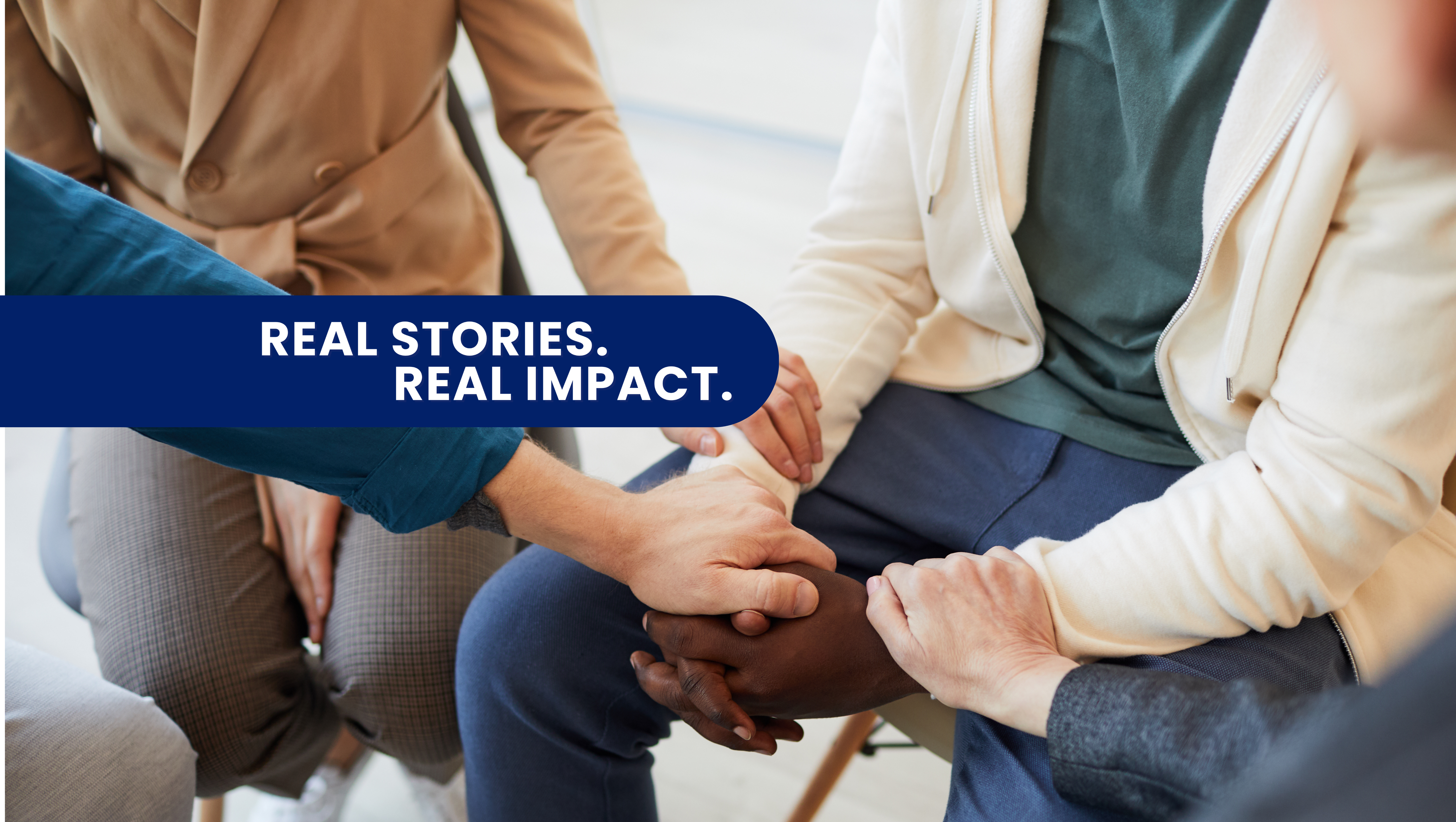Skeptic to Advocate: Extending Therapists’ Support
It was a Friday evening and Jerrica Evans and her husband, Scott, were driving home after a long week at work. The two therapists are employed by the Southwestern Regional Day Report Center (SRDRC) in West Virginia. It’s an isolated, rugged, and rural landscape spread across the rumpled foothills of the Appalachians and marked by high poverty levels and soaring rates of substance use disorder among its residents. Their community. Their clients.
And on that drive home, the couple received a notification through the CHESS Health Connections app on her phone. It was one of their clients, hitting the emergency recovery help button on the app. His spouse had died.
“It was a unique situation,” recalls Jerrica. “She was his wife and also his caretaker.” He was in crisis. Alone. Fortunately, through the Connections app, “we were able to stay on the phone with him until our safety team could get to his home.”
“It was Friday night,” adds Scott. Without the Connections app, the couple likely wouldn’t have heard anything until returning to work on Monday morning. “Without Connections, he probably wouldn’t be alive today.”
Constant Support: Beyond 9-5
The story is a reminder that the job is not a typical 9-5, Monday through Friday job. Triggers and stresses don’t disappear Friday afternoon and reappear Monday morning. Crises happen and needs arise at any time. The CHESS Health Connections app offers a literal 24-hour support lifeline to those in recovery, 7 days a week, with round-the-clock monitoring and support provided by the CHESS Health Peer Engagement Team. For providers, that means they have coverage and can step away from work in the evenings, on weekends and holidays. “I like that it’s not just me on the app (responding to clients),” says Jerrica. “It means I can just go home and be a mom and not worry the rest of the night or weekend.”
That is just one of many reasons Jerrica changed her opinion on the Connections app. She now admits that when it was first introduced to her, she couldn’t see how useful it would be nor how vital it would become to her work. “I just didn’t use it for the first six months or so,” she remembers. As she didn’t believe her clients would respond well to what could be seen as another intrusion into their lives, she didn’t see a reason to promote and encourage her clients to download and utilize the Connections app
Initial Skepticism
“To be honest, I thought my clients would see it as yet another invasion of their privacy,” she says. Many of her clients are there under court orders. They’re not exactly overjoyed to be there. Wouldn’t they see the app as one more punishment?
But then Jerrica began looking through the app and understanding its unique features. “When I started using it, I fell in love with it.” And, she adds, so did her clients.
“We face big barriers here. A lack of resources. We’re not in a big city and don’t have as many of those resources, like food banks, employment opportunities, even places to stay.” That scarcity is compounded by the geographic isolation faced by many of their clients and made exponentially worse by disruptive events like bad weather, economic downturns, widespread illness or, as recently experienced, a global pandemic.
When I started using it, I fell in love with it.
Jerrica Evans, Therapist
CHESS Health’s eRecovery solution provided numerous pathways to overcome those issues. Through the Connections app, Jerrica and her coworkers maintain contact with clients, send out appointment reminders, and even help them navigate their medications. And they know the information they are sending and that their clients are sharing is protected, as the app is HIPPA compliant. They can rest assured that the Peer Engagement team in Connections has their back. They also know that their clients enjoy the app because it provides them with an accessible community of peers and a platform for sharing accomplishments, worries, and fears.
Extending Provider Reach
Jerrica recalls a Saturday morning several years ago when she received notification a local company was holding a last-minute job fair that very day. One of her clients was scrambling to find a good job. “We were able to reach out to him immediately (using the messaging function on the app) with the info about the fair,” she says, ensuring that he was able to attend the fair. This summer, he will mark four years on the job.
That was one of the first of many positive experiences I have had with Connections.
Jerrica Evans, Therapist
“That was one of the first of many positive experiences I have had with Connections,” she says. She routinely uses the app’s journaling feature with clients to review their feelings and help manage their recovery and loves the videos in the Digital CBT module, often assigning them as homework between sessions with her clients. “They are absolutely phenomenal!”
Most critically, both Jerrica and Scott agree, is the 24-hour support connectivity. “I love it,” says Jerrica. “Because our clients don’t always have a support system, they don’t know how to be a sober adult or live a healthy lifestyle. So, to be able to reach out to somebody and say I need help is a big deal.” Genuine connections are made.
“We both had clients graduate the program who still reach out to us every so often on Connections to say hi and let us know how they’re doing,” says Jerrica. “I love that.”
Recovery, whether from addiction, trauma, or other emotional and mental scars, is a long journey. Finding a Connection can be a lifesaver. Learn more about how SRDRC Transformed Substance Use Disorder Treatment in Rural West Virginia with the help of eRecovery and the Connection app.

